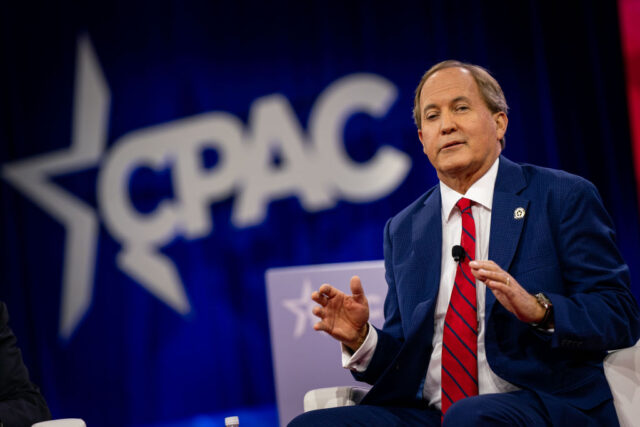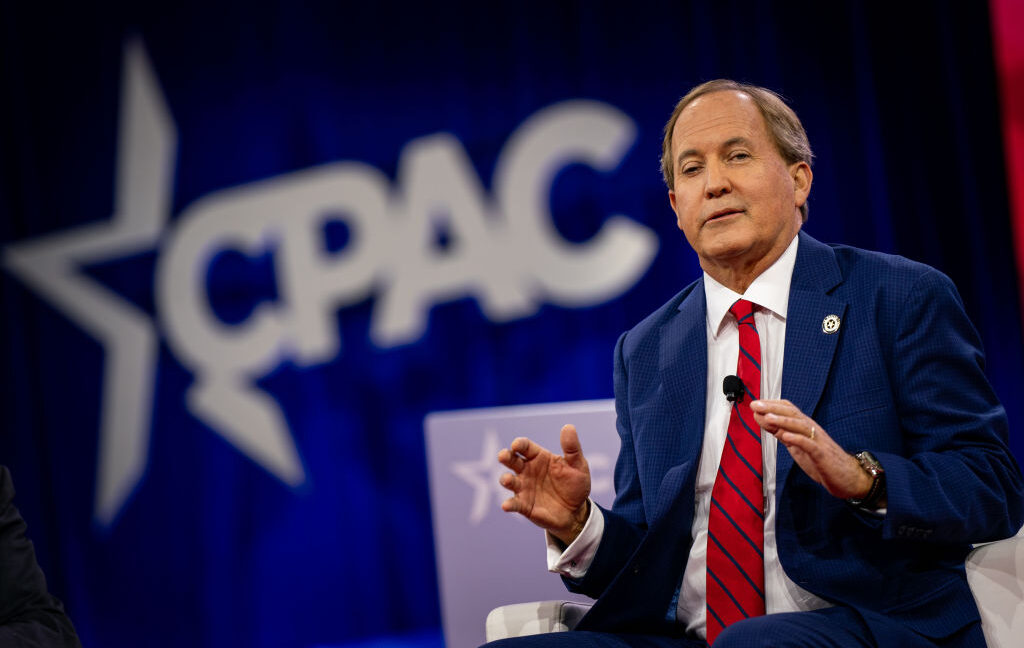“Victory for free speech”
Texas AG loses appeal to seize evidence for Elon Musk’s ad boycott fight
Judge notes “irony” in Texas AG’s attempt to silence watchdog for Musk’s X.
Text
settings
Texas Attorney General Ken Paxton has failed to reverse a preliminary injunction currently blocking him from probing Media Matters for America (MMFA) in defense of Elon Musk’s social media platform X.
On Friday, a US appeals court upheld the injunction. In his opinion, senior Circuit Judge Harry T. Edwards wrote that there was “ample” evidence that Paxton “pursued a retaliatory campaign” against MMFA “because they published an unfavorable article about X.com.” And MMFA has standing to raise a First Amendment defense, because “the First Amendment generally ‘prohibits government officials from subjecting individuals to retaliatory actions after the fact for having engaged in protected speech,” Edwards wrote.
Edwards noted that the day after X sued MMFA over reporting on antisemitic posts appearing next to big brands’ ads on X—alleging the report fraudulently spawned an ad boycott—Paxton announced a broad probe into MMFA that, he confirmed in a press release, was directly due to X’s lawsuit.
Edwards found Paxton’s “contention” that MMFA’s “articles were deliberately designed to mislead consumers about X” was “meritless,” noting, “the record is utterly devoid of evidence to support such a claim.”
But Paxton claimed in the press release that he was “extremely troubled by the allegations that Media Matters, a radical anti-free speech organization, fraudulently manipulated data on X.com” and wanted to “ensure that the public has not been deceived by the schemes of radical left-wing organizations who would like nothing more than to limit freedom by reducing participation in the public square.”
Seemingly intent on doing Musk’s dirty work after Musk indicated it would be “interesting” if state attorneys general joined his “thermonuclear” fight, Paxton sought a wide range of MMFA documents and communications dating back to January 1, 2022. He apparently hoped to uncover facts establishing MMFA’s alleged bias against X and Musk, collusion with advertisers, or funding sources, all of which might support X’s claim that MMFA manipulated X with the goal of tanking the platform. Paxton also encouraged other states to join him investigating MMFA, which notably resulted in a preliminary injunction against Missouri AG Andrew Bailey last August. All of this, Edwards said, provides sufficient evidence of Paxton’s retaliatory motive.
If MMFA is made to endure Paxton’s probe, the media company could face civil penalties of up to $10,000 per violation of Texas’ unfair trade law, a fine or confinement if requested evidence was deleted, or other penalties for resisting sharing information. However, Edwards agreed that even the threat of the probe apparently had “adverse effects” on MMFA. Reviewing evidence, including reporters’ sworn affidavits, Edwards found that MMFA’s reporting on X was seemingly chilled by Paxton’s threat. MMFA also provided evidence that research partners had ended collaborations due to the looming probe.
Importantly, Paxton never contested claims that he retaliated against MMFA, instead seemingly hoping to dodge the lawsuit on technicalities by disputing jurisdiction and venue selection. But Edwards said that MMFA “clearly” has standing, as “they are the targeted victims of a campaign of retaliation” that is “ongoing.”
The problem with Paxton’s argument is that” it “ignores the body of law that prohibits government officials from subjecting individuals to retaliatory actions for exercising their rights of free speech,” Edwards wrote, suggesting that Paxton arguably launched a “bad-faith” probe.
Further, Edwards called out the “irony” of Paxton “readily” acknowledging in other litigation “that a state’s attempt to silence a company through the issuance and threat of compelling a response” to a civil investigative demand “harms everyone.”
With the preliminary injunction won, MMFA can move forward with its lawsuit after defeating Paxton’s motion to dismiss. In her concurring opinion, Circuit Judge Karen L. Henderson noted that MMFA may need to show more evidence that partners have ended collaborations over the probe (and not for other reasons) to ultimately clinch the win against Paxton.
Watchdog celebrates court win
In a statement provided to Ars, MMFA President and CEO Angelo Carusone celebrated the decision as a “victory for free speech.”
“Elon Musk encouraged Republican state attorneys general to use their power to harass their critics and stifle reporting about X,” Carusone said. “Ken Paxton was one of those AGs who took up the call, and his attempt to use his office as an instrument for Musk’s censorship crusade has been defeated.”
MMFA continues to fight against X over the same claims—as well as a recently launched Federal Trade Commission probe—but Carusone said the media company is “buoyed that yet another court has seen through the fog of Musk’s ‘thermonuclear’ legal onslaught and recognized it for the meritless attack to silence a critic that it is,” Carusone said.
Paxton’s office did not immediately respond to Ars’ request to comment.


